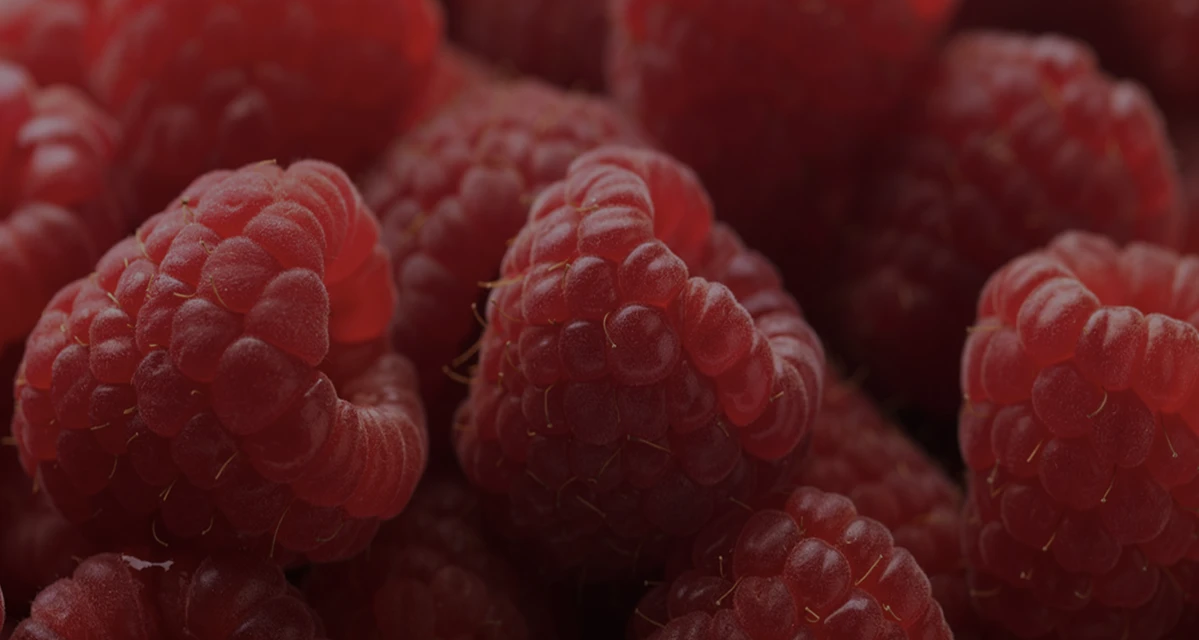Bioavailability and Metabolism of Raspberry Ketone with Potential Implications for Obesity Prevention
Danyue Zhao, Bo Yuan, Dushyant Kshatriya, Andrew Polyak, James Simon, Nicholas Bello, and Qingli Wu
The distinctive aromatic phenol obtained from red raspberries (Rubus idaeus L.), raspberry ketone (RK), is said to have anti-obesity properties. The goals of this study are to: 1) compare the bioavailability of orally dosed RK in four mouse cohorts: male vs. female, lean vs. obese; and 2) characterize major RK metabolites produced in vivo, and 3) Develop bioanalytical targeted metabolomic approaches. RK is extremely bioavailable, even in the brain and WAT, and is quickly metabolized in mice when given orally. Their findings are important for understanding the sites and mechanisms of action of RK in the long-term treatment of diet-induced obesity.
Anti-obese action of raspberry ketone
Chie Morimoto , Yurie Satoh, Mariko Hara, Shintaro Inoue, Takahiro Tsujita, Hiromichi Okuda
A major compound of red raspberries is raspberry ketone (RK), and the structure of RK is similar to structures of other compounds like capsaicin and synephrine, are known to exert anti obese actions and alter lipid metabolism. A study was conducted to examine wether RK can prevent obesity and activate lipid metabolism in mice. The in vivo experiment consisted of different groups. The results of the experiments showed that raspberry ketones prevented the high-fat-diet induced elevations in body weight and visceral adipose tissues. RK also increased norepinephrine-induced lipolysis linked with the changed location of hormone sensitive lipase from the cytosol to lipid droplets in rat epididymal fat cells. The study concluded that raspberry ketones does prevent and improve obesity and fatty liver.
Do Raspberry Ketones Really Work? A Detailed Review
Kris Gunnars, BSc
Raspberry ketones has a long history of being used in the food and cosmetic industry, and recently has been known as a weight loss supplement. Raspberry ketones (RK) supplements are advertised to aid in the weight loss journey because allegedly, RK can cause the fat within cells to be broken down better thereby helping the body burn fat faster. It is also claimed that this supplement can increase levels of adiponectin—a hormone that helps regulate metabolism. Previous studies of fat cells in mice reported increased fat breakdown and increased release of hormone adiponectin. This is important because studies have demonstrated that people with low adiponectin levels are at a higher risk of getting type 2 diabetes, obesity, fatty liver disease, and in some cases, heart disease. In one eight-week study of supplementing RK on humans showed that people who took the supplement lost 7.8% of their fat mass compared to the placebo group that only lost 2.8%. More studies on effects of raspberry ketones on weight are required.
Phenolic-enriched raspberry fruit extract (Rubus idaeus) resulted in lower weight gain, increased ambulatory activity, and elevated hepatic lipoprotein lipase and heme oxygenase-1 expression in male mice fed a high-fat diet.
Dushyant Kshatriya, Xinyi Li Gina M. Giunta, Bo Yuan, Danyue Zhao, James E. Simon, Qingli Wu, and Nicholas T. Bello
Red raspberries have been reported to have many health benefits due to its various phenolic compounds; the most important and most popular being raspberry ketones. One experiment tested wether phenolic-enriched raspberry extracts, compared with raspberry ketone, would be more resilient to the metabolic alterations due to an obesogenic diet. The mice were put on a daily high-fat diet and separated into different groups: coral dose of vehicle (VEH), raspberry extract low (REL), raspberry extract high (REH), or raspberry ketone (RK). The trials concluded that REH and RK reduced body weight gain and white adipose mass when compared with VEH. The tests suggested that there was increased fat oxidation with all treatments, but there was no treatment differences in cumulative intake, meal patterns, or hypothalamic feed related gene expression. In conclusion, both phenolic-enriched raspberry extract and raspberry ketone have the ability to prevent weight gain, but in terms of the preventive mechanisms for excess fat accumulation following high-fat diet exposure, they differed.
What to know about raspberry ketones
Dena Westphalen, Pharm.D.
Many previous studies have examined the effects of raspberry ketones on weight and found that this compound may be able to aid in weight loss. Research on rats indicated that eating a large amount off raspberry ketones may cause rats to lose weight. A study in 2016 reported that ketones may not be the only way to lose weight, but that other raspberry products like raspberry juice, could slow weight gain. In 2017, a study on high-fat induced diets found that raspberry ketones could reduce appetite as well. The reports from a 2012 on high-fat induced rats showed that raspberry ketones may reduce the risk of the disease. Raspberries and its extracts may reduce inflammation and even lower the risk of cardiovascular disease, diabetes, cancer, and arthritis. In the case of dementia and brain health, some evidence suggests that because raspberry ketones may reduce inflammation, it might also lower the risk of dementia. There have been very few isolated reports, but ketones may cause adverse effects such as insomnia, heart palpitations, anxiety, and high blood pressure.
Red Raspberries and Their Bioactive Polyphenols: Cardiometabolic and Neuronal Health Links
Britt M Burton-Freeman,* Amandeep K Sandhu, and Indika Edirisinghe
Red raspberries and its bioactive compounds may have the capacity to reverse or prevent the progression of the pathogenic processes that underlie modern-day metabolic diseases such as diabetes, cardiovascular disease, diabetes mellitus, obesity and Alzheimer disease due to its nutrient and bioactive composition. This compound possesses vital micronutrients, polyphenolic components, and dietary fibers that may be able to reverse or prevent metabolic diseases. In vitro studies, supported by in vivo animal data, suggested that red raspberries have anti-inflammatory, anti-oxidative, and metabolic-stabilizing activity; these effects were also linked with improvements in blood pressure, vascular function, diabetic symptoms, and brain injury recovery.

